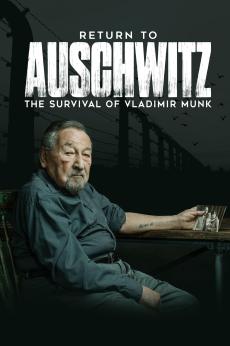Extended Trailer | George W. Bush| American Experience
The latest in our award-winning series of presidential biographies, this film looks at the life and presidency of George W. Bush.
Previews + Extras

Media Gaffes
S32 E4 - 2m 7s
President Bush shone when he met voters in person, but that was not the case in television appearances. “He went into politics as a middle-aged person,” said chief speechwriter Michael Gerson. “He didn't have a set of acting skills that a lot of other politicians had developed over time.”

Criticism and Hurricane Katrina
S32 E4 - 6m 11s
During his second term, President Bush was criticized for the federal government’s response to the devastating impact of Hurricane Katrina. “Katrina ends up being a media domestic version of Iraq,” said journalist Ron Suskind.

Financial Crisis
S32 E4 - 3m 50s
President Bush confronted the most serious financial crisis since the Great Depression. “From the standpoint of an ongoing threat that everybody and government knew that we had to do something about, the financial crisis ... was really scary,” said chief of staff Joshua Bolten.

Neocons and Moderates
S32 E4 - 3m 15s
President Bush's cabinet included Donald Rumsfeld, who brought with him a coterie of advisors known as “neoconservatives,” and moderates such as General Colin Powell and Condoleeza Rice. “I don’t think President Bush intentionally went for a team of rivals,” deputy chief of staff
Joshua Bolten said. “I think he went for a team of strong members and if that meant they were rivals, so be it.”
The Weapons of Mass Destruction
S32 E4 - 5m 21s
The final nail in the coffin of the hunt for Iraq’s weapons of mass destruction came in January 2004 when David Kay told Bush the intelligence reports had been wrong. There were none. “It went to the heart of the Iraq question,” said journalist Peter Baker. “Did the administration mislead the public in some way? Did it intentionally deceive the American people in order to go to war?”

Saddam Hussein
S32 E4 - 3m 49s
Initially resistant to the neocons argument to invade Iraq right away, President Bush felt himself increasingly drawn to the idea. The reasons were not only political, they were personal. "Bush developed a sense that there was unfinished business from the first Persian Gulf War in the early 1990s, that leaving Saddam in power had been a mistake,” recalled journalist Barton Gellman.

Enhanced Interrogation Techniques
S32 E4 - 4m 55s
The behavior of American soldiers at Abu Ghraib shook President Bush, but, to him, there was no connection with his decision to approve harsh interrogation techniques on Al Qaeda suspects. "It showed the kind of rot that was occurring in Iraq under American occupation,” said journalist Elisabeth Bumiller, “and it showed how far off we had come from American ideals."

The Surge of Troops in Iraq
S32 E4 - 3m 18s
“To sell the surge to the American public, Bush had been forced to take a rare step — admit his mistake.” President Bush than enlisted the assistance of General David Petraeus to lead the surge, a move that later paid off.

The Fighter Pilot
S32 E4 - 2m 36s
To avoid combat in Vietnam, Bush joined the 147th Texas Air National Guard, along with other sons of wealthy and well-connected Texans. "In his heart of hearts he did not want to go to Vietnam,” said writer Bill Minutaglio, “but he knew damn well that his father's next step had been to join the military and then become a war hero."

Occupying Iraq
S32 E4 - 3m 45s
After the U.S. took Baghdad, Iraq ground to a halt and became a free-for-all, as homes, stores, museums, hospitals & electric plants were looted. "There was a decision to be lean and count on others showing up to secure the peace,” recalled chief of staff Andrew Card. “There was not as much discussion that I remember in the National Security Council about the process of organizing a government."

Chapter 1 | George W. Bush
S32 E4 - 10m
Watch a preview of part one of George W. Bush.

Trailer | George W. Bush| American Experience
S32 E4 - 30s
The latest in our award-winning series of presidential biographies, this film looks at the life and presidency of George W. Bush.
Similar Shows
WETA Passport
Stream tens of thousands of hours of your PBS and local favorites with WETA Passport whenever and wherever you want. Catch up on a single episode or binge-watch full seasons before they air on TV.









